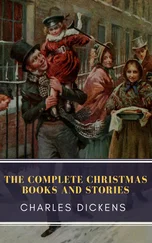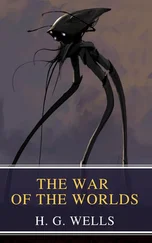Exeunt.
¶
Enter [Don] John and Borachio.
D. John. It is so, the Count Claudio shall marry the daughter of Leonato.
Bora. Yea, my lord, but I can cross it.
D. John. Any bar, any cross, any impediment will be med’cinable to me. I am sick in displeasure to him, and whatsoever comes athwart his affection ranges evenly with mine. How canst thou cross this marriage?
Bora. Not honestly, my lord, but so covertly that no dishonesty shall appear in me.
D. John. Show me briefly how.
Bora. I think I told your lordship a year since, how much I am in the favor of Margaret, the waiting- gentlewoman to Hero.
D. John. I remember.
Bora. I can, at any unseasonable instant of the night, appoint her to look out at her lady’s chamber-window.
D. John. What life is in that, to be the death of this marriage?
Bora. The poison of that lies in you to temper. Go you to the Prince your brother; spare not to tell him that he hath wrong’d his honor in marrying the renown’d Claudio—whose estimation do you mightily hold up—to a contaminated stale, such a one as Hero.
D. John. What proof shall I make of that?
Bora. Proof enough to misuse the Prince, to vex Claudio, to undo Hero, and kill Leonato. Look you for any other issue?
D. John. Only to despite them, I will endeavor any thing.
Bora. Go then, find me a meet hour to draw Don Pedro and the Count Claudio alone, tell them that you know that Hero loves me, intend a kind of zeal both to the Prince and Claudio—as in love of your brother’s honor, who hath made this match, and his friend’s reputation, who is thus like to be cozen’d with the semblance of a maid—that you have discover’d thus. They will scarcely believe this without trial. Offer them instances, which shall bear no less likelihood than to see me at her chamber- window, hear me call Margaret Hero, hear Margaret term me Claudio; and bring them to see this the very night, before the intended wedding—for in the mean time I will so fashion the matter that Hero shall be absent—and there shall appear such seeming truth of Hero’s disloyalty, that jealousy shall be call’d assurance, and all the preparation overthrown.
D. John. Grow this to what adverse issue it can, I will put it in practice. Be cunning in the working this, and thy fee is a thousand ducats.
Bora. Be you constant in the accusation, and my cunning shall not shame me.
D. John. I will presently go learn their day of marriage.
Exeunt.
¶
Enter Benedick alone.
Bene. Boy!
[Enter Boy.]
Boy. Signior?
Bene. In my chamber-window lies a book, bring it hither to me in the orchard.
Boy. I am here already, sir.
Exit.
Bene. I know that, but I would have thee hence, and here again. I do much wonder that one man, seeing how much another man is a fool when he dedicates his behaviors to love, will, after he hath laugh’d at such shallow follies in others, become the argument of his own scorn by falling in love—and such a man is Claudio. I have known when there was no music with him but the drum and the fife, and now had he rather hear the tabor and the pipe; I have known when he would have walk’d ten mile afoot to see a good armor, and now will he lie ten nights awake carving the fashion of a new doublet; he was wont to speak plain and to the purpose (like an honest man and a soldier), and now is he turn’d ortography—his words are a very fantastical banquet, just so many strange dishes. May I be so converted and see with these eyes? I cannot tell; I think not. I will not be sworn but love may transform me to an oyster, but I’ll take my oath on it, till he have made [an] oyster of me, he shall never make me such a fool. One woman is fair, yet I am well; another is wise, yet I am well; another virtuous, yet I am well; but till all graces be in one woman, one woman shall not come in my grace. Rich she shall be, that’s certain; wise, or I’ll none; virtuous, or I’ll never cheapen her; fair, or I’ll never look on her; mild, or come not near me; noble, or not I for an angel; of good discourse, an excellent musician, and her hair shall be of what color it please God. Hah! the Prince and Monsieur Love. I will hide me in the arbor.
[Withdraws.]
Enter Prince [Don Pedro], Leonato, Claudio. Music [within].
D. Pedro.
Come, shall we hear this music?
Claud.
Yea, my good lord. How still the evening is,
As hush’d on purpose to grace harmony!
D. Pedro.
See you where Benedick hath hid himself?
Claud.
O, very well, my lord. The music ended,
We’ll fit the [hid]-fox with a pennyworth.
Enter Balthasar with Music.
D. Pedro.
Come, Balthasar, we’ll hear that song again.
Balth.
O good my lord, tax not so bad a voice
To slander music any more than once.
D. Pedro.
It is the witness still of excellency
To put a strange face on his own perfection.
I pray thee sing, and let me woo no more.
Balth.
Because you talk of wooing, I will sing,
Since many a wooer doth commence his suit
To her he thinks not worthy, yet he woos,
Yet will he swear he loves.
D. Pedro.
Nay, pray thee come,
Or if thou wilt hold longer argument,
Do it in notes.
Balth.
Note this before my notes:
There’s not a note of mine that’s worth the noting.
D. Pedro.
Why, these are very crotchets that he speaks—
Note notes, forsooth, and nothing.
[Air.]
Bene. Now, divine air! now is his soul ravish’d! Is it not strange that sheep’s guts should hale souls out of men’s bodies? Well, a horn for my money when all’s done.
The Song
[Balth.]
Sigh no more, ladies, sigh no more,
Men were deceivers ever,
One foot in sea, and one on shore,
To one thing constant never.
Then sigh not so, but let them go,
And be you blithe and bonny,
Converting all your sounds of woe
Into hey nonny nonny.
Sing no more ditties, sing no moe,
Of dumps so dull and heavy;
The fraud of men was ever so,
Since summer first was leavy.
Then sigh not so, etc.
D. Pedro. By my troth, a good song.
Balth. And an ill singer, my lord.
D. Pedro. Ha, no, no, faith, thou sing’st well enough for a shift.
Bene. And he had been a dog that should have howl’d thus, they would have hang’d him, and I pray God his bad voice bode no mischief. I had as live have heard the night-raven, come what plague could have come after it.
D. Pedro. Yea, marry, dost thou hear, Balthasar? I pray thee get us some excellent music; for to-morrow night we would have it at the Lady Hero’s chamber-window.
Balth. The best I can, my lord.
Exit Balthasar.
D. Pedro. Do so, farewell. Come hither, Leonato. What was it you told me of to-day, that your niece Beatrice was in love with Signior Benedick?
Claud. [Aside.] O ay, stalk on, stalk on, the fowl sits.—I did never think that lady would have lov’d any man.
Leon. No, nor I neither, but most wonderful that she should so dote on Signior Benedick, whom she hath in all outward behaviors seem’d ever to abhor.
Bene. Is’t possible? Sits the wind in that corner?
Читать дальше












![Уильям Шекспир - The Works of William Shakespeare [Cambridge Edition] [Vol. 1 of 9]](/books/746589/uilyam-shekspir-the-works-of-william-shakespeare-c-thumb.webp)